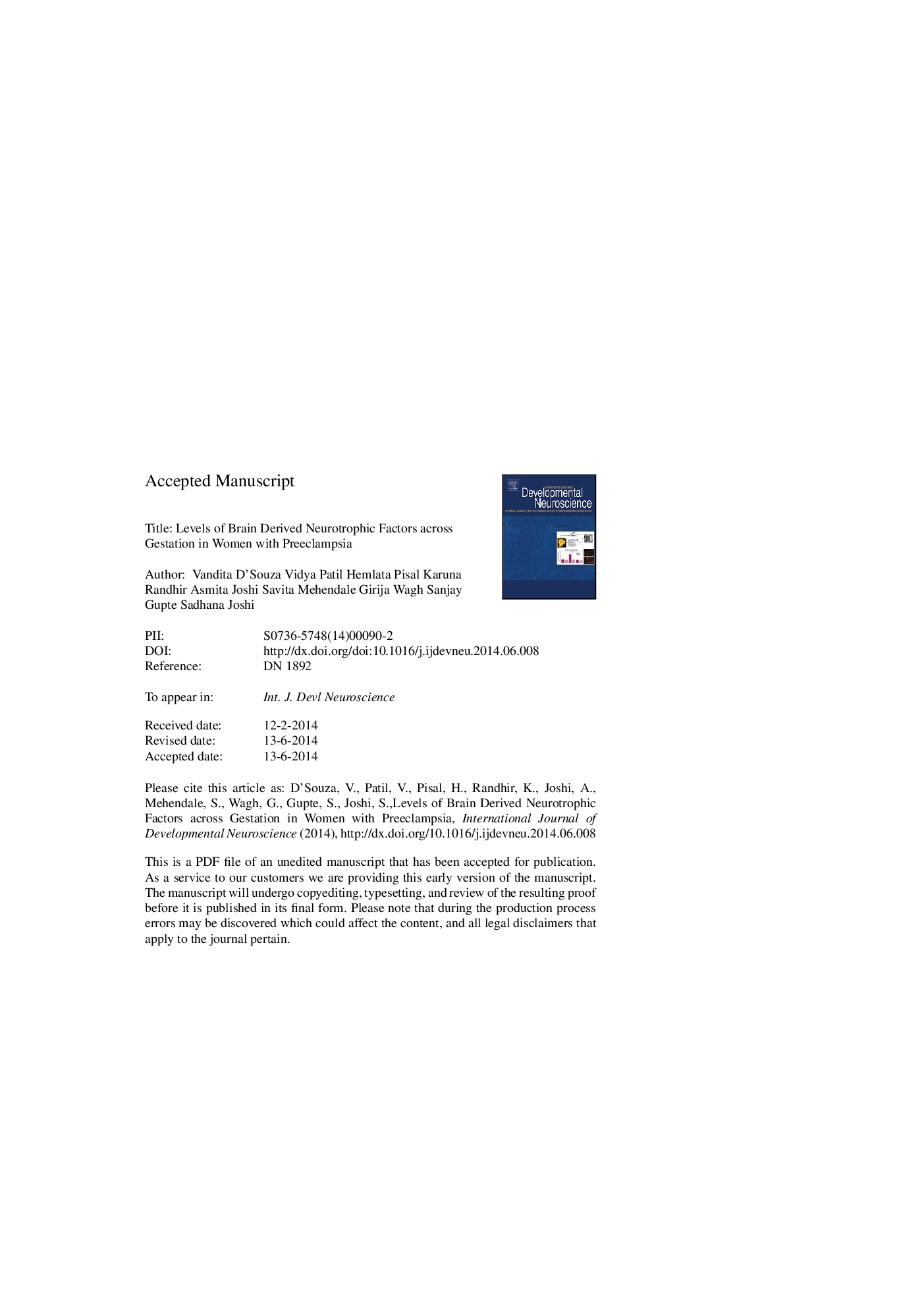| Article ID | Journal | Published Year | Pages | File Type |
|---|---|---|---|---|
| 5893891 | International Journal of Developmental Neuroscience | 2014 | 26 Pages |
Abstract
Preeclampsia (PE) is a major pregnancy complication of placental origin which leads to adverse pregnancy outcome. Brain derived neurotrophic factor (BDNF) is suggested to promote trophoblast growth and regulate placental and fetal development. This study for the first time examines the levels of maternal plasma BDNF at various time points during gestation, cord plasma and placental BDNF levels and their association with birth outcome in women with PE. Normotensive control (NC) women (n = 89) and women with PE (n = 61) were followed at three different time points [16-20 weeks (T1), 26-30 weeks (T2) and at delivery (T3)]. Maternal blood at all time points and cord blood was collected. Results indicate that maternal BDNF levels at T1 (p = 0.050) and T3 (p = 0.025) were lower in women with PE than in NC women. Cord BDNF levels at delivery in women with PE were lower (p = 0.032) than those in NC women. Placental BDNF gene expression was also lower (p = 0.0082) in women with PE than in NC women. Our data suggests that BDNF plays an important role in the development of the materno-fetal-placental unit during pregnancy. Alteration in the levels of BDNF during pregnancy may be associated with an abnormal development of the placenta resulting in PE.
Keywords
Related Topics
Life Sciences
Biochemistry, Genetics and Molecular Biology
Developmental Biology
Authors
Vandita D'Souza, Vidya Patil, Hemlata Pisal, Karuna Randhir, Asmita Joshi, Savita Mehendale, Girija Wagh, Sanjay Gupte, Sadhana Joshi,
